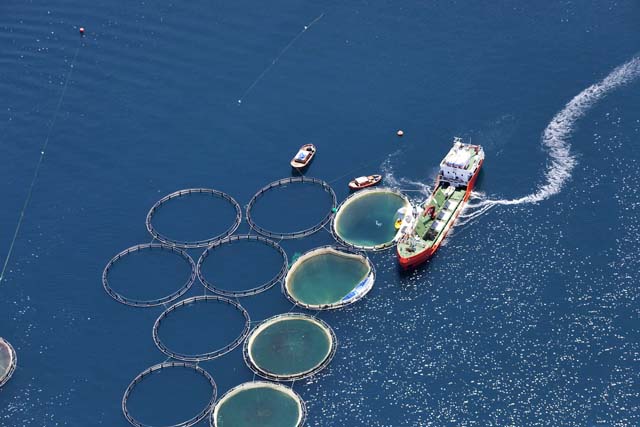In the high-volume transport conditions experienced in salmon farms and other commercial marine environments that require the moving of live fish, preventing infection and contamination is crucial, as is ensuring fish welfare. Wellboats, which sort, treat and transfer farmed salmon to open seas and back, are relying on Bio-UV and Redox hygiene and biosecurity solutions to keep farmed fish fresh.
The transportation of farmed fish, predominantly salmon, for commercial purposes must comply with mandatory welfare requirements to minimise stress and danger to the livestock being transported. The EU Platform on Animal Welfare Voluntary Initiative on Fish Welfare (2020) stipulates that water quality parameters should be kept within acceptable limits throughout the journey, with supplemental oxygen supplied and changes in water temperature avoided. It also stresses that key water quality parameters should have limits established that are specific to the species and life stage of the fish. Ensuring compliance with these and other requirements of live fish transport is central to the business model of water treatment specialist Bio-UV, which has a long history of activity in aquaculture and, specifically, the wellboat sector.
The company’s UV-and ozone-based water treatment technology tackles the proliferation of algae and addresses risks of waterborne diseases affecting fish stocks by reproducing natural ecosystems, using ultraviolet light and ozone to disinfect the water during their journeys from land based or hatcheries to offshore farms. With over a decade of experience in maritime UV treatment for both newbuild and retrofitted vessels, Bio-UV has partnered with Redox,a Norwegian aquaculture technology supplier, to provide effective water treatment solutions to wellboats operating globally. Redox provides solutions for regulating water quality to the fisheries and aquaculture industry, with a particular focus on encouraging good growth and water quality while increasing biosecurity at customers’ facilities.
Simon Marshall, Deputy GM Bio-UV Group said: “Redox is one of the world’s leading companies in terms of equipping wellboats, from newbuild to retrofit. They have the equipment and the ability to intervene and send technicians worldwide. That’s why we chose them as our partner, and we are growing the market together.”
In addition to supplying its water treatment technology to customers worldwide, Bio-UV Group is designing bespoke advanced oxidation processes for clients who require this service.
Patrick Jean Pichavant, Bio-UV Group Export Sales Director, said: “We have an R&D department that accompanies each project from design to installation. We offer flexibility regarding manufacturing of the device chosen and are able to respond from pre-sales to after-sales services.”
Many of the key aspects of the technologies used in keeping wellboat water are common with the ballast water treatment sector, in which BIO-UV has had a strong presence since 2011 with its brand, Bio Sea. In September 2019, Bio-UV Group further strengthened its market position by acquiring a 100% stake in Scotland-based Triogen Holdings, a former subsidiary of Suez, leveraging the benefits of Triogen’s investments in ozone and advanced oxidation process technologies.
Bio-UV Group redesigned the Triogen Integra range to adapt to the specific challenges of wellboat marine environments. With certified marine components, for use in rough marine environments, the Integra range delivers a powerful UV dose in an energy-efficient manner to eliminate pathogens. By combining its UV and ozone knowledge, Bio-UV Group can offer its fish farming customers chemical-free methods for eliminating organic pollutants and contaminants in the fish tanks while increasing the concentration of dissolved oxygen in the water.



